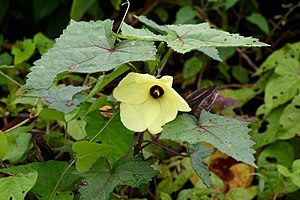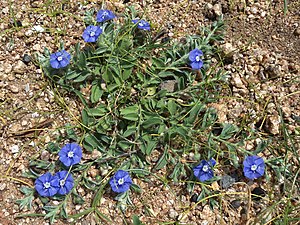Note: This is a project under development. The articles on this wiki are just being initiated and broadly incomplete. You can Help creating new pages.
Difference between revisions of "Main Page"
| Line 1: | Line 1: | ||
| + | [[File:Abelmoschus moschatus (Malvaceae) (29680066960).jpg|thumb|right|''Latakasturi'', ''Abelmoschus moschatus'']] | ||
| + | |||
| + | |||
<div> | <div> | ||
<div style="text-align:center;"> | <div style="text-align:center;"> | ||
Revision as of 08:10, 10 September 2023
We're about to start pages in Hindi, Kannada and Malayalam. Interested in helping out? Click here
Awarded 'Gold' award under "Award for Excellence in Information Technology in AYUSH sector - 2019"
Enter the name of a page to create or edit:
This project is still in the initial stages and we encourage volunteers who're interested to join in and help build the project.
 Medicinal plants (2256) |
Ayurvedic Herbs - Number of pages (2256) Document, read about several herbs used in Ayurveda. Contribute photos. |
 Drugs (489) |
Ayurvedic Medicine Document, read Ayurvedic Medicine available in the market presently. |
 Drug Manufacturers (158) |
Ayurvedic Drug Manufacturers List, add and edit various Drug manufacturers in Ayurveda. |
 Yoga (290) |
Yoga Document, read about Yoga, Patanjali's sutras and various asanas. |
 Traditions (53) |
Traditions in Ayurveda Read, document the traditions in Ayurveda. |
 Physiology (169) |
Physiology in Ayurveda Physiology in Ayurveda |
 Concepts (30) |
Concepts Concepts in Ayurveda. |
 Practices (11) |
Practices in Ayurveda Document, read about various practices in Ayurveda. |
 Prakriti (13) |
Prakriti in Ayurveda Prakriti in Ayurveda |
 Standards (13) |
Standards in Ayurveda Standards in Ayurveda |
From this week's featured page
Vishnukranti is a tiny prostrate spreading herb with silky hairy leaves and bright blue flowers. It can be found throughout India in gravelly and grassy places.
Uses: Insomnia, Bleeding disorders, Improves memory, Cough, Wounds, Fever, Stomach ache and Dysentery.
Chemical Composition: Evolvulus alsinoides (Linn.) Linn. was interpreted to find the phytochemicals like alkaloids, carbohydrates, steroidal glucosides, saponin, tannins, pseudo tannins, chlorogenic acids, flavones, flavonoids, coumarin, anthocyanin, phenol, terpenoides, resins, volatile oil, anthraquinones, phytosterol and triterpenoids.
Getting started
News
- iOS app available now.
- Android app available now.
Ongoing Collaboration: Documentation of recommendations from AYUSH ministry for Covid19.



